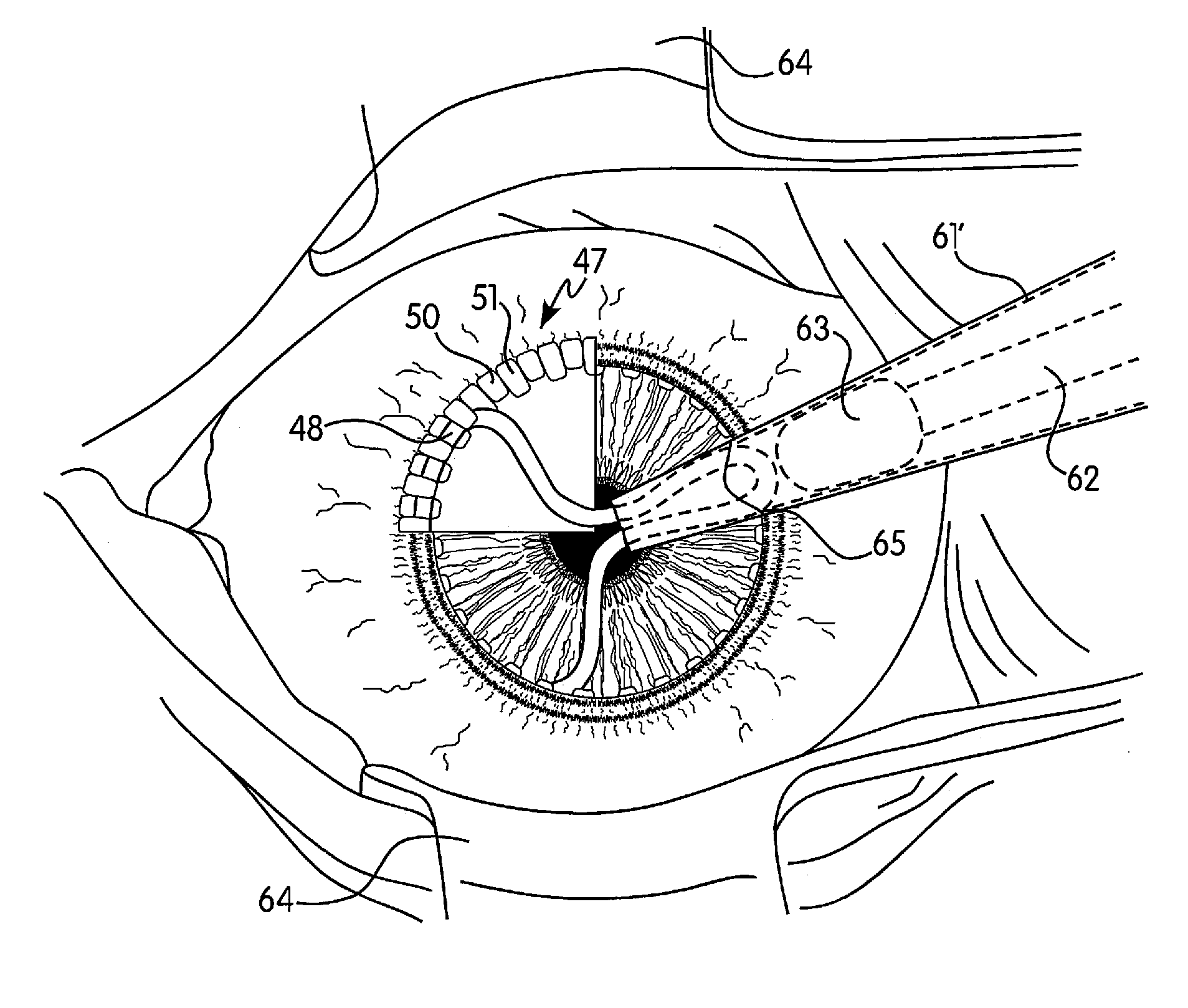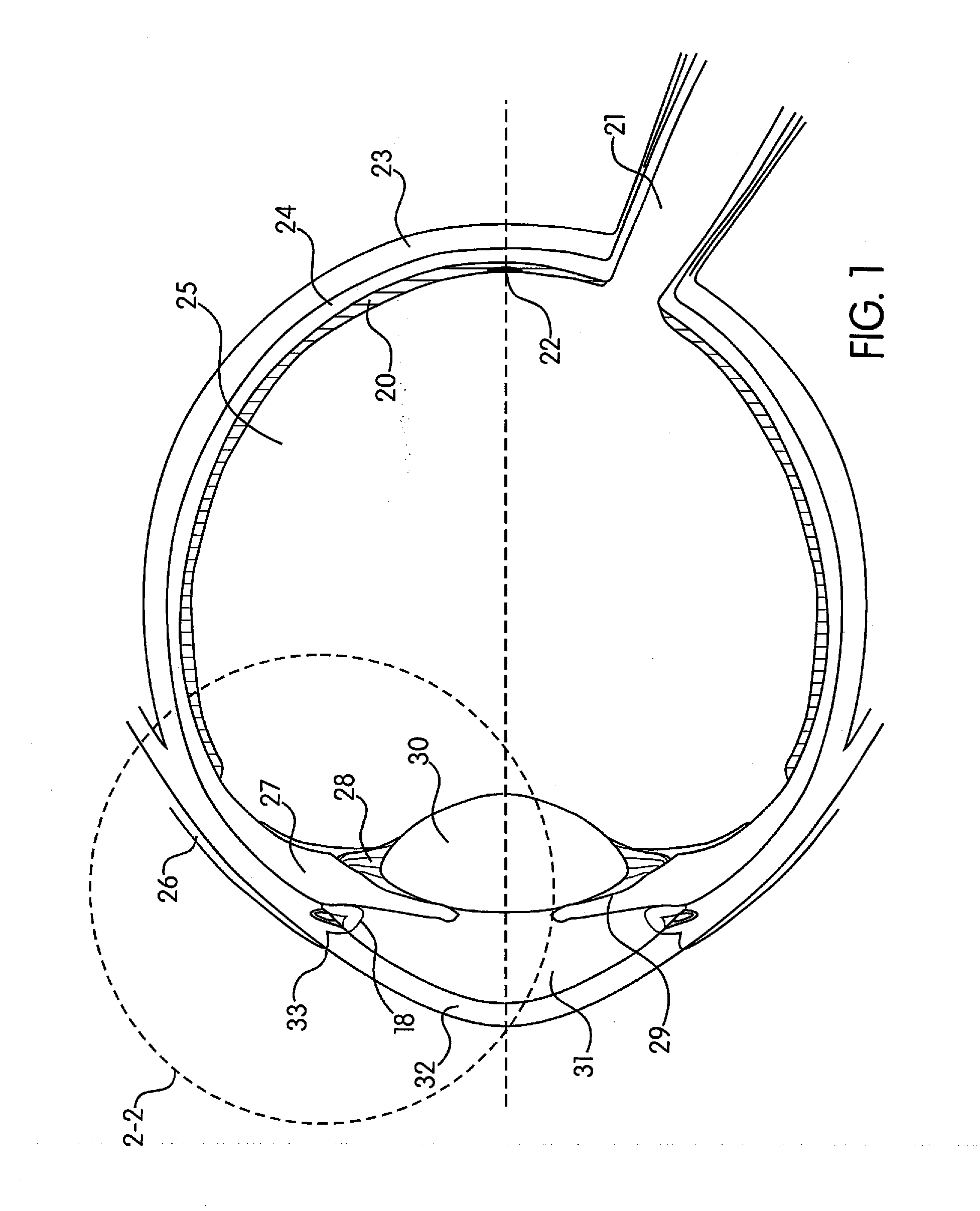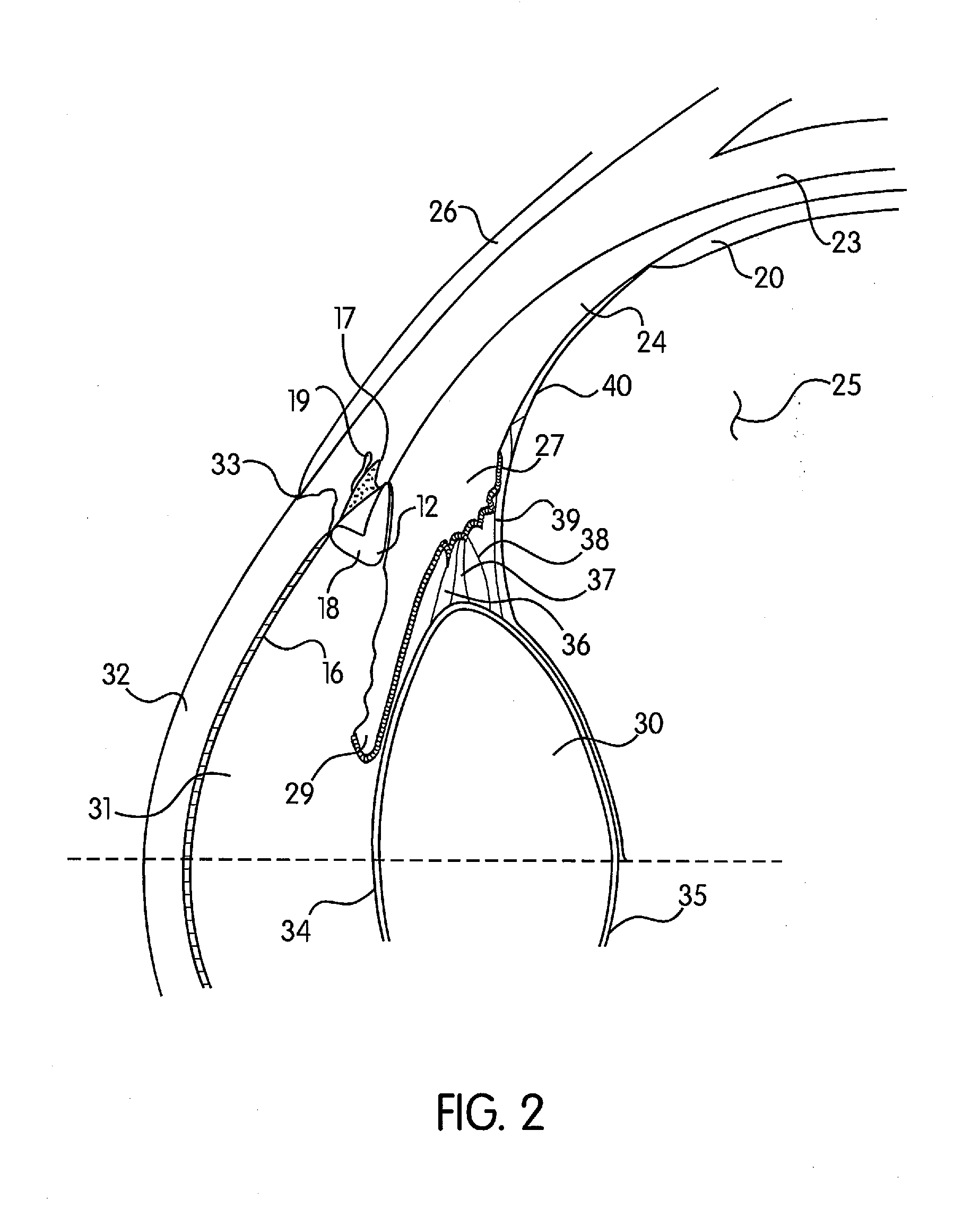Method of Reducing the Occurrence of Macular and Neuroretinal Degenerations by Alleviating Age Related Retinal Stresses as a Contributing Factor in a Mammalian Eye
a mammalian eye and neuroretinal degeneration technology, applied in the field of human eye surgical implanted devices, can solve the problems of reducing the ability to actuate change and focus, essentially totally ineffective, flaccid focusing apparatus, etc., and achieve the effect of restoring some level of accommodation and restoring some level of phakic eye accommodation
- Summary
- Abstract
- Description
- Claims
- Application Information
AI Technical Summary
Benefits of technology
Problems solved by technology
Method used
Image
Examples
Embodiment Construction
[0069]The illustrations generally show preferred embodiments of the devices used to treat predictable structural ocular aging changes of the anterior segment of the human eye. While the descriptions present various embodiments of the device(s), it should not be interpreted in any way as limiting the invention. Furthermore, modifications, concepts and applications of the inventions embodiments are to be interpreted by those skilled in the art as being encompassed, but not limited to the illustrations and descriptions herein.
[0070]The following description is provided to enable those skilled in the art to make and use the described embodiments contemplated for carrying out the invention. Various modifications, equivalents, variations, and alternatives, however, will remain readily apparent to those skilled in the art. Any and all such modifications, variations, equivalents, and alternatives are intended to fall within the spirit and scope of the present invention. Further, for purpose...
PUM
 Login to View More
Login to View More Abstract
Description
Claims
Application Information
 Login to View More
Login to View More - R&D
- Intellectual Property
- Life Sciences
- Materials
- Tech Scout
- Unparalleled Data Quality
- Higher Quality Content
- 60% Fewer Hallucinations
Browse by: Latest US Patents, China's latest patents, Technical Efficacy Thesaurus, Application Domain, Technology Topic, Popular Technical Reports.
© 2025 PatSnap. All rights reserved.Legal|Privacy policy|Modern Slavery Act Transparency Statement|Sitemap|About US| Contact US: help@patsnap.com



